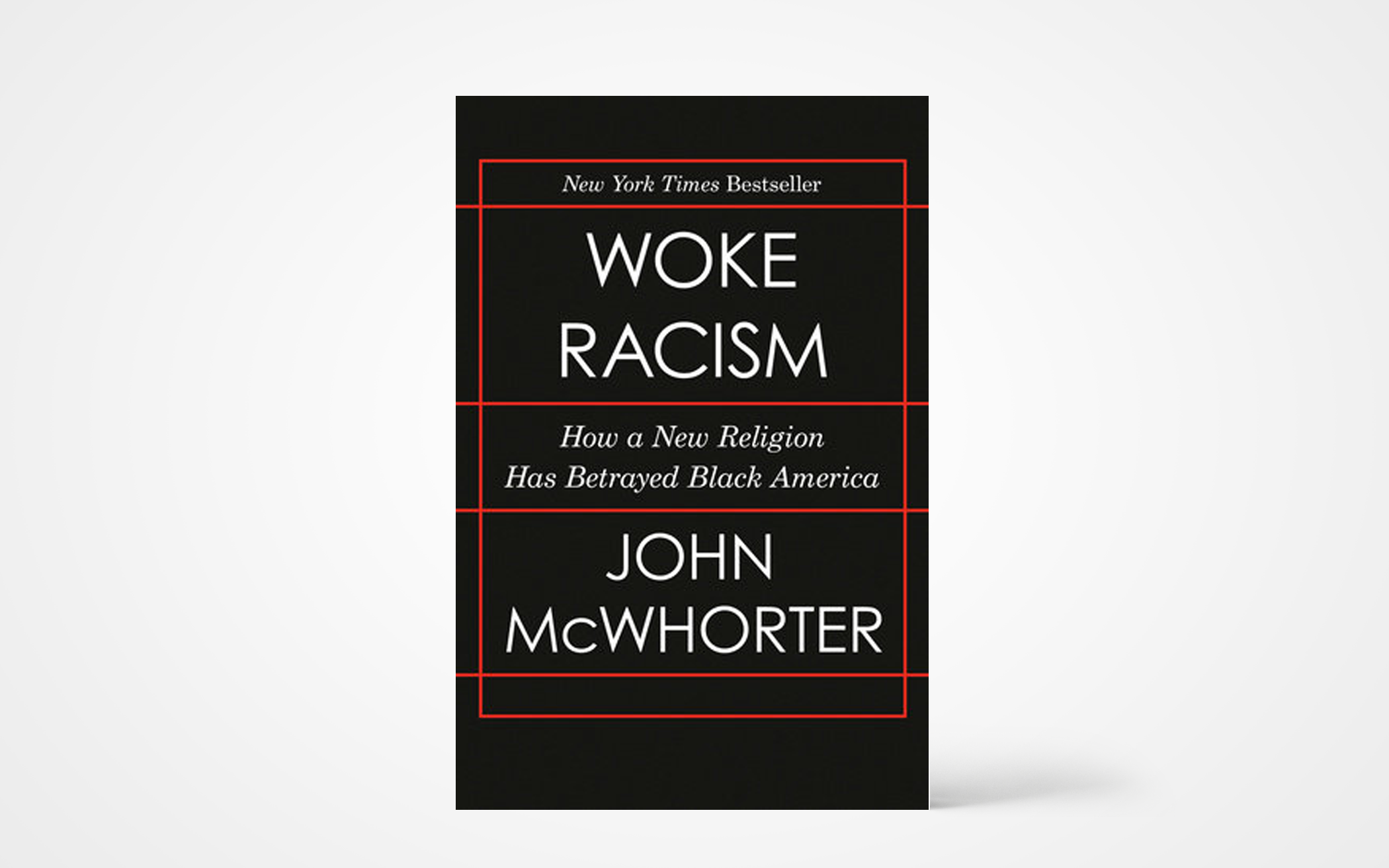John McWhorter’s new book, Woke Racism, has in mind a particular audience. While most nonfiction available at your local bookstore targets the general reader, this examination of racial attitudes explicitly spells out who his book is for: “I want to reach those on the fence.” In other words, McWhorter is writing to those who have a genuine desire to improve racial disparity in this country but who are also uncomfortable with the rhetoric of writers like Robin DiAngelo, Ta-Nehisi Coates, and Ibram X. Kendi, all of whom McWhorter describes as third-wave antiracists.
It’s an interesting rhetorical strategy—perhaps it could even be an effective one—but it raises the question as to why McWhorter doesn’t try to sway those who have found these antiracist writers compelling. His answer is simple: they’re beyond hope; there’s simply no talking to them. In fact, McWhorter’s main argument is that contemporary antiracists are no different than the religious (he even refers to them as “The Elect”). For him, they’re superstitious, beyond reason. They have their own set of clergy (see the above-named authors), and they are quick to label those not “woke” enough as heretics.
It’s a clever premise, but it suffers for at least a couple of reasons. First, it fails to differentiate between the truly religious—those systems of belief that point beyond themselves to the transcendent—and what many would call ideology or, perhaps, fundamentalism. This simplistic take on antiracism as religious proves especially disappointing, considering that McWhorter is such a careful writer in his own field of linguistics. Indeed, it ends up caricaturing religion to such a degree that it’s hard to trust that he’s not also caricaturing today’s antiracists.
To his credit, McWhorter does provide specific examples of problematic passages and statements from prominent antiracists, but these feel cherry-picked. For instance, he finds fault with Coates for writing that “he had no sympathy for the white cops and firemen who died at the World Trade Center on 9/11.” This is a worthwhile critique, but McWhorter makes it sound like a policy that Coates is endorsing rather than the raw emotions Coates is honest enough to admit to in his memoir. Moreover, later in his book, McWhorter makes the point that Woodrow Wilson’s racism shouldn’t detract from his “general record as a progressive with a passionate commitment to world peace.” It’s hard not to see this as a double-standard.
As for his critiques of DiAngelo, McWhorter makes some fair points about her book White Fragility; then again, I know several people who would consider themselves antiracist but who also take issue with aspects of DiAngelo’s approach. To critique all who claim the term “antiracist” based on DiAngelo is a little like critiquing all who claim the name “Christian” by way of Pat Robertson. Yes, Robertson and I might share central convictions, but please don’t assume he represents me. Tellingly, McWhorter avoids discussing some of the best antiracist thinkers, authors like Isabel Wilkerson or Heather McGhee. He does end up endorsing Michelle Alexander’s critique of the war on drugs, an appraisal that he sees as working toward racial equity, not just virtue-signaling.
Insights like these are where his argument is strongest—those moments when he shows how too much of our racial discourse amounts to knowing the right language while shaming others for mispeaking; when he challenges us to confront how many of us blindly buy into concepts that don’t actually produce change. Especially compelling is his analysis of how some antiracists end up essentializing race (the idea that all people of color are victims and all whites are privileged), thus replicating the lazy stereotypes that we should seek to avoid. Likewise, he makes the point that when scholars refuse to criticize writers like Kendi just because they’re Black, this ends up infantilizing rather than empowering.
Ultimately, I think, McWhorter is less frustrated with antiracism than an antiracism that leaves no room for discussion—one that manifests as cancel culture. But to some extent Woke Racism falls into the same trap, as McWhorter himself writes off, rather than writes to, those he so vehemently disagrees with. (Penguin Random House)
About the Author
Andrew Zwart lives in Grand Rapids, Mich., and is director of interdisciplinary studies at Kuyper College. He enjoys gardening, impromptu dance parties with his wife and two boys, and taking walks while listening to podcasts.

